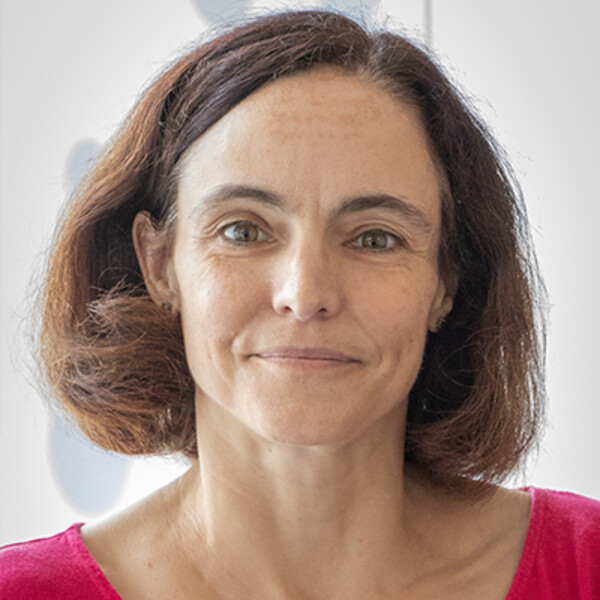Main Second Level Navigation
Cynthia Hawkins
PhD, MD, FRCPC

Dr. Cynthia Hawkins obtained her MD/PhD from Western University. She completed her residency training in neuropathology at the University of Toronto, including a post-doctoral fellowship at the University of Zurich. Dr. Hawkins joined The Hospital for Sick Children (SickKids) as a neuropathologist in 2002 and is the Medical Director of Translational Molecular Pathology. She is a Senior Scientist at the SickKids Research Institute and a Professor of Laboratory Medicine and Pathobiology at The University of Toronto.
Dr. Hawkins’ clinical practice includes both surgical and autopsy paediatric neuropathology. She is best known for her expertise in paediatric brain tumours and has a research lab devoted to paediatric glioma. Her research interests include molecular pathogenesis and therapeutics for paediatric glioma and clinical implementation of novel diagnostic, prognostic and therapeutic markers for paediatric brain tumours.
The Hawkins laboratory has contributed to the clinical, morphologic and genetic characterization of diffuse intrinsic pontine glioma (DIPG) and pediatric-type glioma as well the clinical and biologic implications of mutant histones.
Read more about Dr. Hawkins' research in Pathology and precision medicine: how research has transformed brain tumour diagnostics for children
Research Synopsis
Brain tumors are the largest group of solid tumours and the leading cause of cancer-related death in childhood with gliomas representing the most common group.
The Hawkins lab is devoted to the study of paediatric and adolescent/ young adult (AYA) glioma with the goal of understanding how these tumours form, how they progress and how they can best be diagnosed accurately and targeted therapeutically.
The most devastating brain tumours are high grade astrocytomas (pHGA) including diffuse intrinsic pontine glioma (DIPG)/ diffuse midline glioma (DMG). These are incurable tumours with a median survival under two years. They respond poorly to conventional therapy and drug trials based on adult HGAs have not succeeded. The discovery of recurrent histone mutations (H3K27M and H3.3G34R) in pHGA by us and others provided important clues regarding the role of epigenetic in the pathogenesis of these cancers. But despite these important genetic findings, there is still no effective treatment for these children.
Low grade gliomas represent the most common group of gliomas in children and work in the Hawkins lab has led to a better understanding of the molecular underpinnings of these tumours. Current work is aimed at understanding the spectrum of alterations in the AYA population and how we can use this genetic information to improve diagnostics and offer less toxic, targeted therapeutics to these patients.
Selected publications
Khuong-Quang DA, Buczkowicz P, Rakopoulos P, Liu XY et al. K27M mutation in histone H3.3 defines clinically and biologically distinct subgroups of pediatric diffuse intrinsic pontine gliomas. Acta Neuropathol. 2012 Sep;124(3)439-447.
Buczkowicz P, Hoeman C, Rakopoulos P, Pajovic S et al. Genomic analysis of diffuse intrinsic pontine gliomas identifies three molecular subgroups and recurrent activating ACVR1 mutations. Nature Genetics. 2014 May;46(5):451-6.
Ryall S, Zapotocky M, Fukuoka K, Nobre L, Guerreiro Stucklin A, Bennett J, Siddaway R, Li C, Pajovic S, Arnoldo A, Kowalski PE, Johnson M, Sheth J, Lassaletta A, Tatevossian RG, Orisme W, Qaddoumi I, Surrey LF, Li MM, Waanders AJ, Gilheeney S, Rosenblum M, Bale T, Tsang DS, Laperriere N, Kulkarni A, Ibrahim GM, Drake J, Dirks P, MD Taylor, JT Rutka, Laughlin S, Shroff M, Shago M, Hazrati LN, D’Arcy C, Ramaswamy V, Bartels U, Huang A, Bouffet E, Karajannis MA, Santi , Ellison DW, Tabori U, Hawkins C. Integrated Molecular and Clinical Analysis of 1,000 Pediatric Low-Grade Gliomas. Cancer Cell. 37(4):569-583, 2020
Pajovic S, Siddaway R, Bridge T, Sheth J, Rakopoulos P, Kim B, Ryall S, Agnihotri S, Philips L, Yu M, Li C, Milos S, Patel P, Srikanthan D, Huang A, Hawkins C. Epigenetic activation of a RAS/MYC axis in H3.3K27M-driven cancer. Nature communications. 11(1):6216, 2020
J Fortin, R Tian, I Zarrabi, G Hill, E Williams, G Sanchez-Duffhues, M Thorikay, P Ramachandran, R Siddaway, JF Wong, A Wu, LN Apuzzo, J Haight, A You-Ten, BE Snow, A Wakeham, DJ Goldhamer, D Schramek, AN Bullock, P ten Dijke, C Hawkins, TW Mak. Mutant ACVR1 arrests glial cell differentiation to drive tumorigenesis in pediatric gliomas. Cancer Cell. 37(3):308-323, 2020
Honours and Awards
Fellow of the Canadian Academy of Health Sciences (CAHS) (2024)
William Gerald Award, Memorial Sloan Kettering Cancer Center (MSKCC) (2022)
Richard G. Hegele Award for Excellence in Research and Innovation, Department of Laboratory Medicine & Pathobiology, University of Toronto (2021)
Garron Family Chair in Childhood Cancer Research (2020)
Lucien J. Rubinstein Award, American Association of Neuropathologists (2011, 2013, 2016, 2017, 2020)
Lotte-Strauss Prize, Society for Pediatric Pathology (2010)
Lucien J. Rubinstein Award, American Association of Neuropathologists (2009)
Eli-Lilly/CCO/CIHR Clinician Scientist Award (2003-2007)
Mary Tom Award, Canadian Association of Neuropathology (1999-2000)
